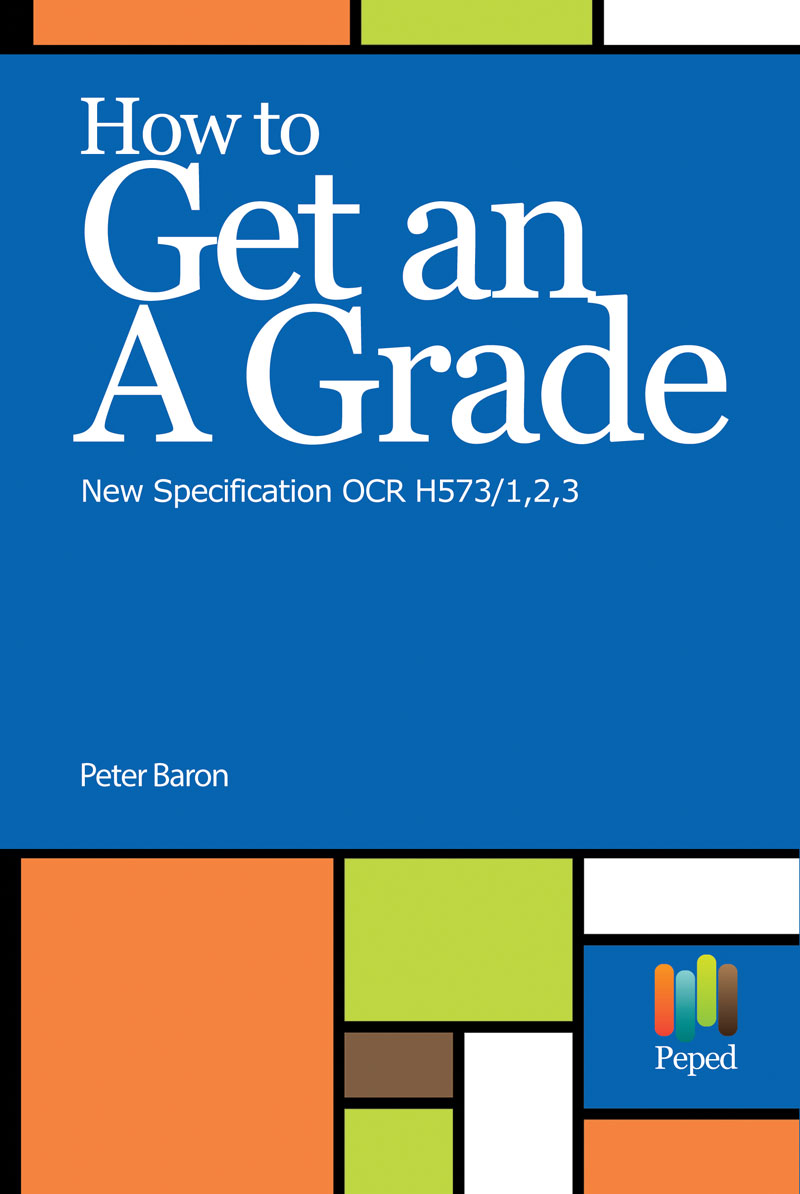Front cover
How to Get an A Grade
(for New Specification OCR H573/1,2,3)
How to Get an A Grade subjects the new OCR Religious Studies specification to a close analysis and evaluation, in order to simplify and integrate an approach to gaining A or A*.
There are sections on exam questions, how to think like a philosopher, how to integrate the three papers (Philosophy of Religion, Ethics and Christian Thought), and how to answer harder questions.
The integrating principles of history, hermeneutics, human nature and metaphysics are explained by referencing across the three papers, encouraging students to adopt a wider perspective.
Textbook materials are also considered and evaluated and students encouraged too enrich their own additional reading using the website that accompanies the book, peped.org.
This book will help students and teachers navigate their way towards creative excellence.
£9.99
Product details
Format: Softcover Book
Size: 5.5″ x 8.5″ (13.97 x 21.59 cm)
Paper: Black & White on White paper
Pages: 183
ISBN-13: 9781983346590
For bulk orders over 30 items please contact sales@peped.org directly
Full Contents Breakdown
Table of Contents
- Introduction to the New Specification
- Five Principles for A level Success
- What Are Religious Studies Exams For?
- Make your argument different
- Make your examples real
- Four Integrating Principles in the Specification
- Integrating Principle 1 – History
- Integrating Principle 2 – Hermeneutics
- Integrating Principle 3 – Metaphysics
- Integrating Principle 4 – What Does it Mean to be Human?
- How to Analyse the Specification
- Philosophy of Religion (OCR H573/1)
- Interpreting the Philosophy Specification
- Technical Vocabulary
- Named Theologians and Philosophers
Contents continued
- Synoptic Links in Philosophy of Religion
- Ethics (OCR H573/2)
- Critical Discussion
- Synoptic Links
- Christian Thought OCR H573/3
- Named Authors
- Technical Vocabulary in Christian Thought
- Christian Thought – Underlying Issues
- Synoptic Elements
- How Assessment Works
- Explaining the Six Levels
- How to Gain Level 6
- How to Analyse Exam Questions
- Command Words in Questions
Contents continued
- Philosophy of Religion Exam Questions H573/1
- The Complete List of Possible Exam Questions – Philosophy of Religion
- Mark Schemes and Indicative Content – Philosophy of Religion H573/1
- Ethics Exam Questions H573/2
- Questions so Far – Ethics
- The Full List of Possible Questions
- Mark Schemes and Indicative Content – Ethics
- Christian Thought Exam Questions H573/3
- Past Questions so Far – Christian Thought
- Full List of Possible Exam Questions – Christian Thought
- What the Mark Scheme Says – Specimen Paper 2016
- How to Handle Questions with Scripture References
- How Might We Handle Ephesians 5?
- Some Revision Tips for A Grade
- Spot the Gaps in Past Questions
Contents continued
- What the Examiner Says
- Answer the question
- Know your key terms throughly
- Reflect, don’t just memorise
- Show higher order skills
- Argue, don’t assert
- Illustrate with examples
- Produce an argument, not a list
- Be aware of the various issues (and applications) within a topic
- Find out about modern interpretations
- References
- Appendix of Technical Terms







